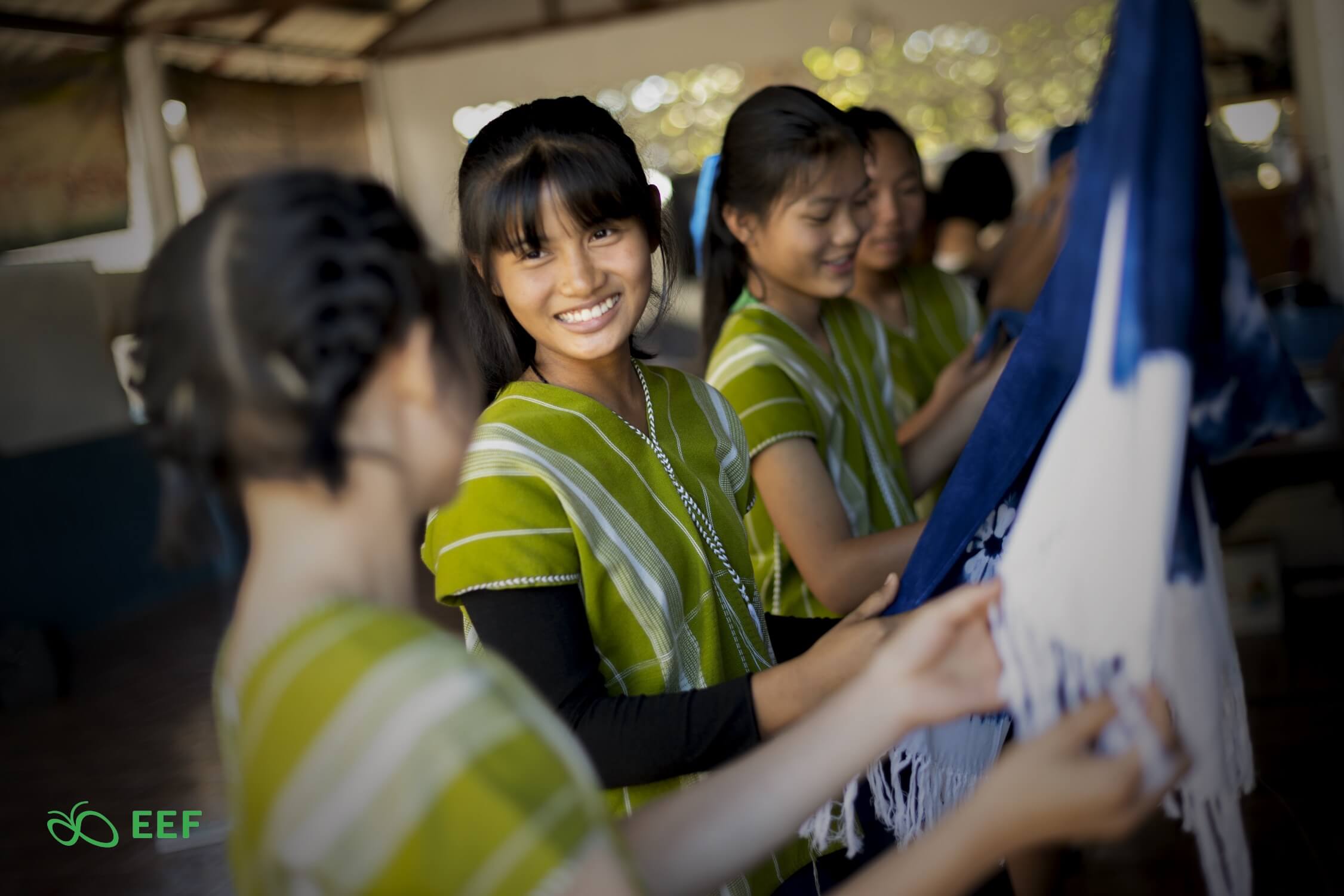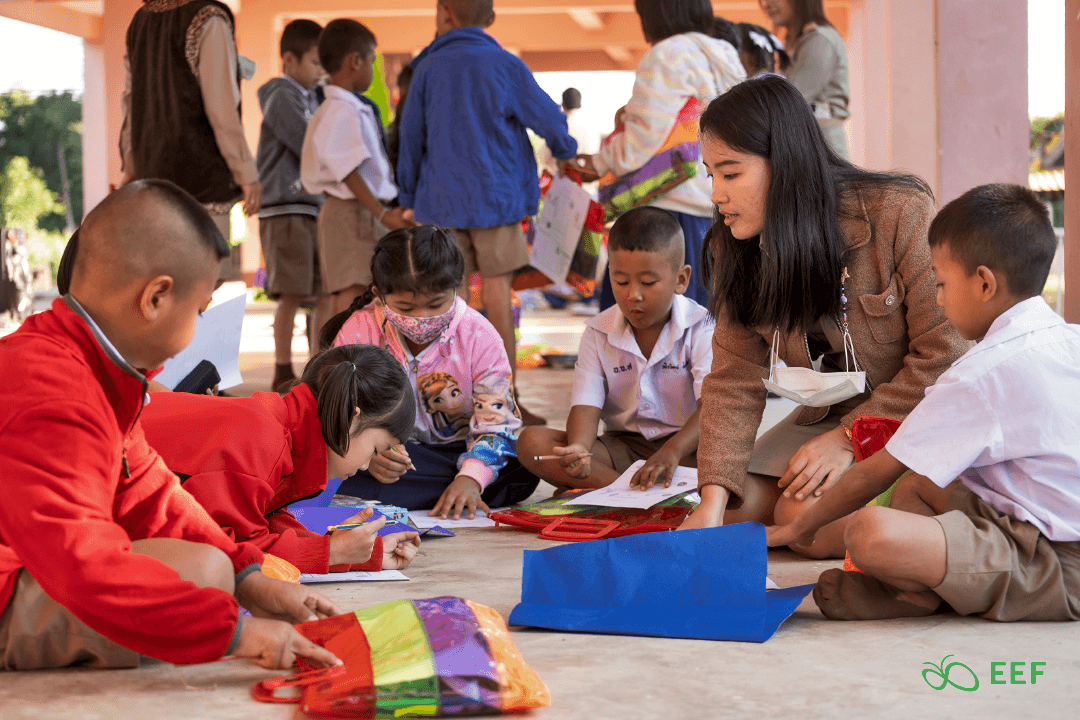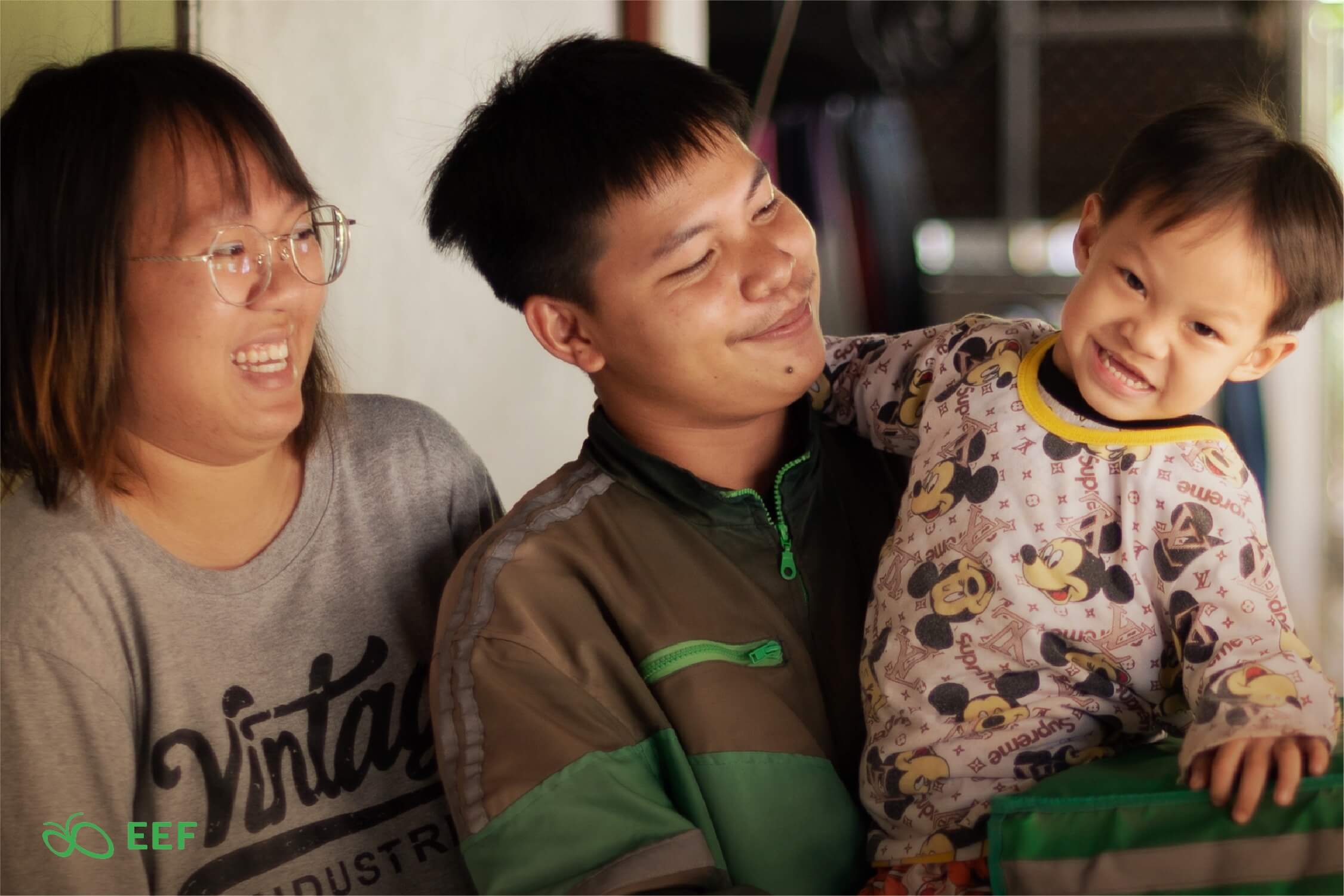Looking Back to Step Forward Empowering Koh Yao Yai Communities: the Journey of Ngarnkhaeng and Thainapreaw as Homegrown Teachers and Community Developers
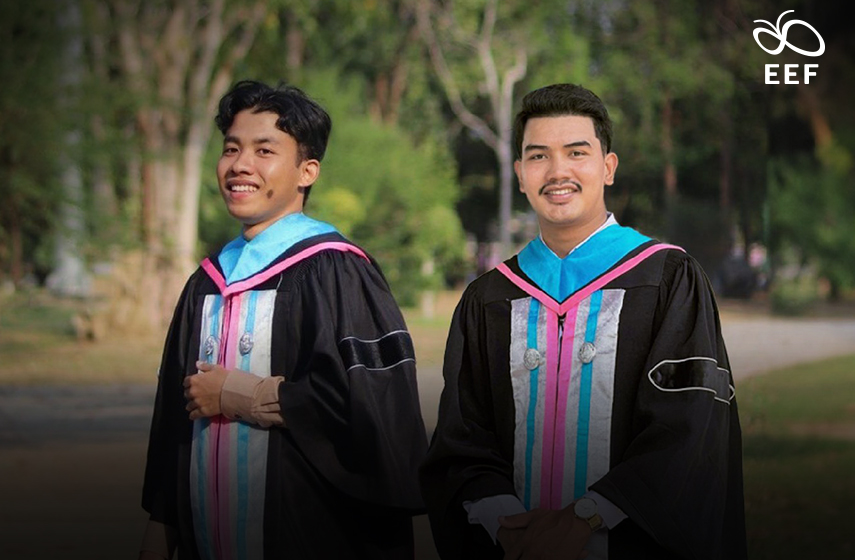
Fresh graduates from Yala Rajabhat University‘s esteemed primary education program, Nattawut Ngarnkhaeng and Siriphong Thainapreaw are eagerly looking forward to their forthcoming roles at Ao Mamuang School and Ao Kapor School, respectively, starting October 2024. Their impending return is eagerly anticipated not only by the schools but also by the children, who will benefit from their committed presence for a mandated six-year term under the Homegrown Teacher scholarship. This initiative supports underprivileged students in pursuing a bachelor’s degree and returning to teach in their hometowns, ensuring dedicated, long-term support for the students and communities they serve.
Historically, Koh Yao Yai has been grappling with limited educational opportunities in upper secondary and higher education. Upon completing compulsory education at Grade 9, many students choose to pursue livelihoods and support their families financially through fishing or agriculture, the island’s predominant occupation. Those with sufficient family resources often leave the island for further education — with few returning. Despite the island’s burgeoning tourism industry, teacher turnover remains a persistent challenge, prompting the Homegrown Teacher initiative to encourage residents to pursue teaching careers. This aims to enhance educational prospects and bring life stability, particularly for economically disadvantaged students.
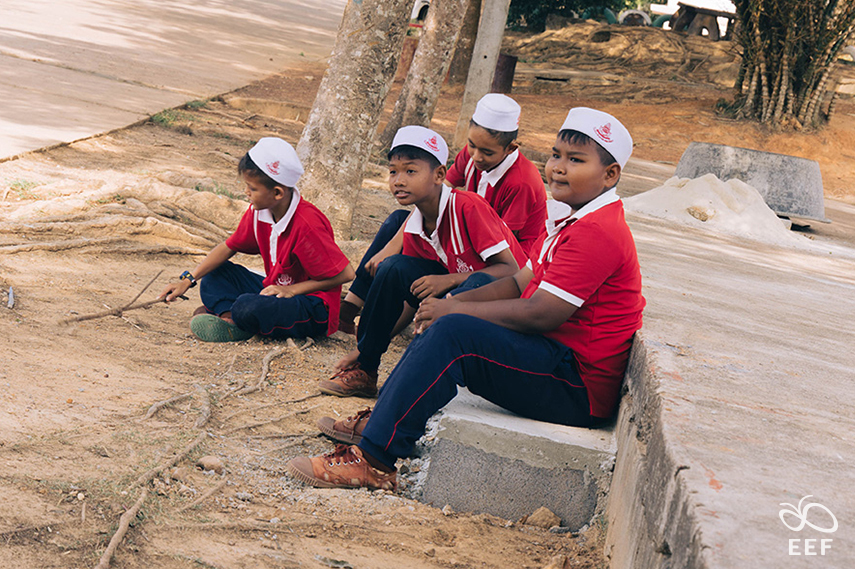
The training provided through the Homegrown Teacher scholarship initiative mirrors traditional teacher preparation but incorporates supplementary programs and activities that greatly influence educators’ practices. One such program is the “Enrichment Program,” which equips teachers with essential skills and competencies relevant to the specific contexts of their assigned schools. For example, teachers assigned to island schools are trained in swimming and local occupational skills to better support and advise their students. Additionally, the initiative includes annual school observation visits, allowing prospective teachers to familiarize themselves with their designated schools, and providing ample time for preparation and adjustment, thus ensuring a smooth transition into their new teaching environments.
Transitioning to a teaching role presents its own set of challenges, particularly when it comes to managing classroom dynamics. As part of their final year of training, teachers undergo observation and practice teaching phases. While observing classes may seem straightforward, the true test arises during practice teaching, where maintaining classroom discipline can be daunting. Ngarnkhaeng experienced this first-hand, finding it challenging to uphold discipline in the classroom during his practice sessions despite finding observation relatively easy. It is engaging with mentor teachers and seeking feedback from students that has helped him navigate the intricacies of classroom management.
Similarly, Thainapreaw encountered feedback from students, pointing out he spoke too quickly and assigned too many writing activities. By addressing these concerns, he refined his teaching methods, eagerly awaited by his students upon his return to the classroom. Through trial and error, both educators realized the significance of student-centered teaching approaches in cultivating an interactive and supportive classroom atmosphere, ultimately enhancing learning outcomes and fostering stronger teacher-student relationships.
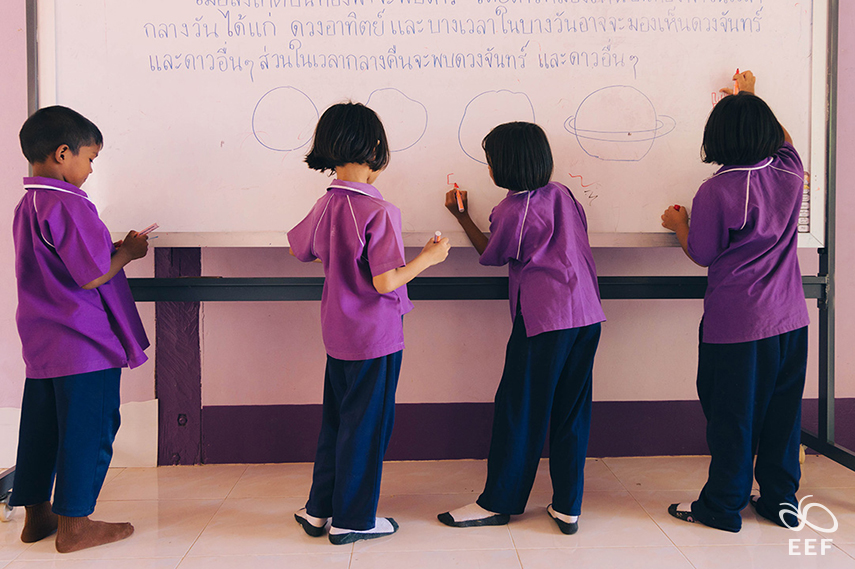
The challenge of frequent teacher turnover poses a significant challenge for island schools, leading to disruptions in student learning and necessitating time-consuming replacements. In response, school administrators urged islanders who are teaching elsewhere to come back home. This strategic initiative aims to mitigate turnover by bringing in local educators who possess an intimate understanding of community dynamics, thus establishing continuity and elevating educational standards to foster excellence. By tapping into the insights and connections of educators with deep roots in the community, the initiative seeks to create a stable and nurturing environment conducive to student success.
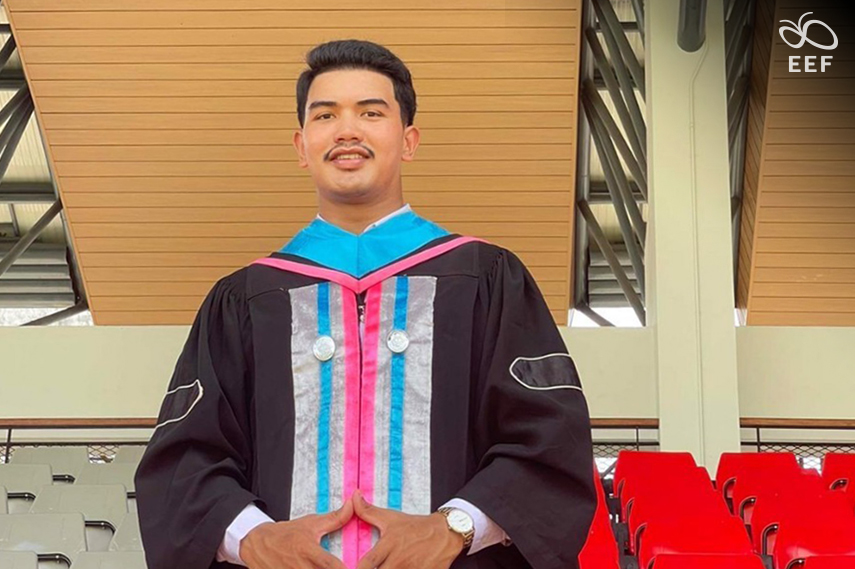
Ngarnkhaeng and Thainapreaw, having once been students in the area themselves, bring invaluable insights and a sense of continuity to the educational landscape of their hometown. Recognizing the indispensable role of community involvement, these educators willingly embrace dual responsibilities as both teachers and community developers. Despite potential concerns about increased workload, they are committed to effectively balancing their teaching duties with community development efforts.
With a deep understanding of the interconnectedness between schools and communities, they actively immerse themselves in both realms. Engaging in community development initiatives alongside their endeavors to enhance the school environment, Ngarnkhaeng and Thainapreaw orchestrate a multitude of events designed to actively involve residents. These efforts aim to bridge the gap between the schools and the communities, fostering collaboration and unity.
Community development extends beyond mere infrastructure enhancement to fostering positive mindsets among residents; it includes nurturing positive mindsets among community members. Initiatives such as “10 Stories on Koh Yao” by Ngarnkhaeng and “Hajj Tales” by Thainapreaw serve to preserve cultural heritage and ensure that younger generations maintain a strong connection to their roots. These endeavors play a crucial role in nurturing a sense of pride and belonging within the community.
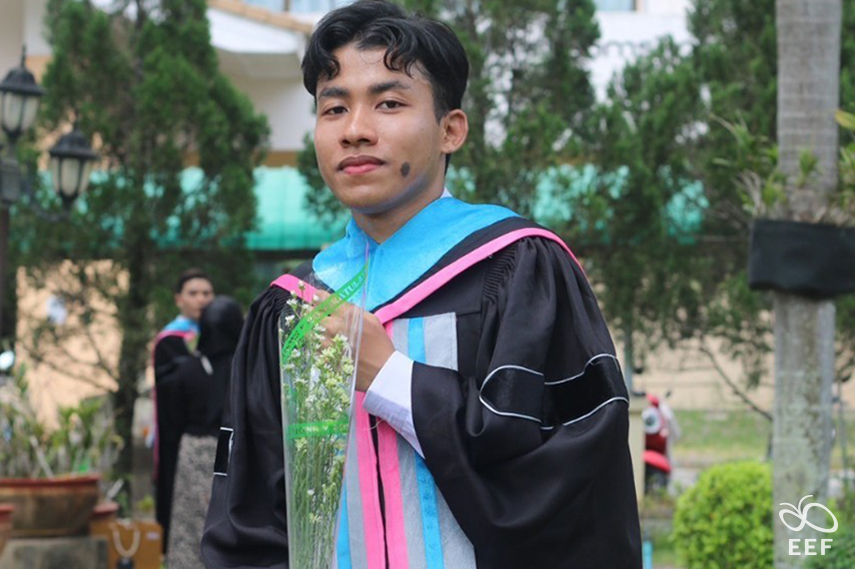
The journeys of Nattawut Ngarnkhaeng and Siriphong Thainapreaw exemplify the transformative power of education and community engagement. As beneficiaries of the Homegrown Teacher initiative by the Equitable Education Fund (EEF) Thailand, they embody the very spirit of dedication and service, returning to their hometowns as educators and catalysts for positive change. Through their commitment to continuous learning, adept classroom management, and active involvement in community development, the two bridge the gap between education and community, fostering resilience and prosperity. Their story underscores the profound impact of investing in local talent and nurturing sustainable educational ecosystems. By empowering individuals like Ngarnkhaeng and Thainapreaw, the EEF’s mission to promote equitable access to education and cultivate homegrown teaching talent is not only realized but also serves as a beacon of hope for future generations, paving the way for thriving communities and a brighter tomorrow.
Others Impact Stories
When a School Becomes a Market of Opportunities
When a School Becomes a Market
Learning to Learn Through Play
Learning to Learn Through Play
Life at the end of the tunnel
Life at the end of the


